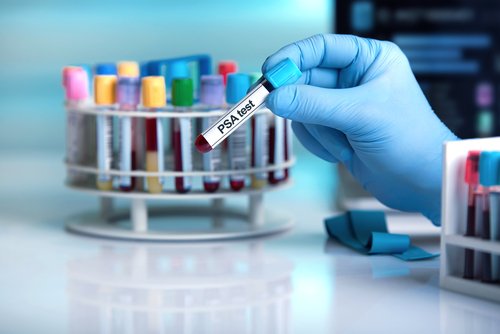Cleveland Diagnostics‘ IsoPSA prostate cancer test is significantly better than a standard PSA test at identifying those with prostate cancer and those at risk of developing an aggressive form of the disease, according to the interim clinical trial results.
The findings suggest that not only can IsoPSA do a better of identifying those who needed treatment, but also reduce unnecessary biopsies.
The research, “The Single-parameter, Structure-based IsoPSA Assay Demonstrates Improved Diagnostic Accuracy for Detection of Any Prostate Cancer and High-grade Prostate Cancer Compared to a Concentration-based Assay of Total Prostate-specific Antigen: A Preliminary Report,” was published in the journal European Urology.
Eric Klein, chairman of Cleveland Clinic’s Glickman Urological & Kidney Institute, led the study, which included researchers from the Cleveland Clinic, Kaiser Permanente Northwest, the Michigan Institute of Urology, and other organizations.
“PSA has been the mainstay test in screening and diagnosing of prostate cancer for over two decades, but its sensitivity to cancer is negated by its lack of specificity for the same, resulting in millions of unnecessary biopsies and billions of precious healthcare dollars wasted annually,” Dr. Arnon Chait, the CEO of Cleveland Diagnostics, said in a press release.
PSA is short for a protein named prostate-specific antigen. A PSA test measures the protein’s levels in a person’s blood. High levels can mean cancer, but other conditions — such as an enlarged or inflamed prostate — can produce high levels as well.
This means the PSA test generates a lot of false-positive cancer readings. Doctors often resort to biopsies to see whether high levels of PSA are actually designating cancer. But only 25 percent of biopsies show the presence of cancer.
The IsoPSA test detects cancer by identifying cancer-related molecular structural changes in protein.
The Cleveland Clinic-led study compared the diagnostic accuracy of IsoPSA with the PSA, which is the most widely used tool. Researchers enrolled 261 men who were scheduled for a prostate biopsy between August 2015 and December 2016.
A preliminary analysis showed that the IsoPSA test, which is also blood-based, was more accurate than a standard PSA in determining the presence of prostate cancer and reducing false positives. The new test could reduce unnecessary biopsies by as much as 50 percent, the findings suggested.
IsoPSA tests were also better than PSA tests at identifying those at risk of developing an aggressive cancer. This could help doctors manage cases better by separating those needing an aggressive treatment from those whose cancers require monitoring only. The idea behind monitoring is to keep tabs on a patient’s cancer until it reaches a stage where it needs to be treated.
“The technology underlying IsoPSA represents a transformational departure in how cancer biomarkers are defined,” Chait said. “Instead of asking the non-specific question of how much of a biomarker, such as PSA, is circulating in blood, our test essentially identifies the type of PSA that originates only from cancer cells.”
The United States Preventative Services Task Force recently updated its assessment of PSA as a screening tool for prostate cancer from a D, which discourages its use, to a C, confirming its applicability for some patients and under some circumstances. The PSA’s accuracy as a tool for prostate cancer screening and early detection is a hotly debated topic.
“The clinical utility of PSA to primary care providers and urologists is limited by the relatively poor diagnostic accuracy and predictive value of the test,” said Mark Stovsky, a co-author of the study who is a urologist at Cleveland Clinic.
“Clinicians today are using an array of diagnostic tests and procedures to inform decisions about a patient’s prostate health and the risk of prostate cancer,” he said. “We believe that IsoPSA has the potential to fill a major void in this space.”

